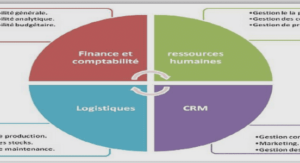Multiculturalism
The American character has to do with issues like: war and peace, bread and butter, and black and white. Probably the most important question of the century is what it means to be American. It is very difficult to define what it means to be an American, yet we can describe him. It is said that even the Canadians and the Mexicans are also Americans in the technical sense. America has always been a nation of immigrants, home to a wide variety of ethnic groups who have different backgrounds, races, religions, cultures and values. What is certain about these ethnic groups, whether minorities or hyphenated Americansn, is that they consider themselves as Americans and nothing else. Before getting deeper into the reality of ethnic groups in United States, it is important to draw a distinction between multiculturalism and assimilation. The term multiculturalism is used to mean ethnic pluralism or the existence of various ethnic, racial and/or cultural subgroups in a society side by side. In a multicultural society, ethnic diversity and variation can be clearly observed. At least some members of the same ethnic groups have kept their specific markers. Multiculturalists are for the maintenance of one‟s own cultural heritage. Assimilationists however, are against diversity because according to them it creates divisiveness in the country. Hence, some people consider multiculturalism as the opposite of unity; for them multiculturalism is nothing but pluralistic anarchy.
Still others believe that multiculturalism is something perfect for the national unity by respecting the culture and ethnicity of the other. Kessler-Harris defines multiculturalism as follows: If the fight for multiculturalism is a request for inclusion…… then we need to see the struggle over multiculturalism as a tug of war over who gets to create the public culture. (1992:331). Multiculturalism is characterised by eclecticism which welcomes pluralism and does not accept “artificial hierarchies that privilege some forms of cultural expression over others.” (Fox-Genovese 1990: 1) However, there are opponents to this trend. C. Bencomo and E. Colla indicate that multiculturalism emphasises some groups and neglects others. They wrote: For instance, while Zionist politics in America has been successful in voicing concerns about anti- Jewish racism (anti-Semitism), no similar discourse yet exists for addressing anti-Arab racism… and so Jesse Jackson‟s comments about Jews have seemed unforgivable, yet the mainstream media routinely characterises Arabs as terrorists and fanatics without provoking comments (1993:3) Some critics also described multiculturalism as a war against a national American culture and Identity. Rosenthal calls advocates of these trend new segregationists, and says that they “are undermining the great act of political genius upon which this country rests…the concept that this nation was to be based on a variety of identities from which one new identity springs.” (Quoted in Kessler-Harris 1992:302) A member of an appointed committee of New York assured that multiculturalism “opens the way for the kind of ethnic strife that has divided…nations where there is no consent on a common culture.”
Fox-Genovese claims that multiculturalism is not divisive; on the contrary it rather recognises a collective and a shared identity which came out from distinct identities of the different groups, classes and communities that constitute the American society. Americans believe that their ancestors had added something special to their cultures, religions, beliefs, traditions and different races. Is multiculturalism a negative approach? Generally speaking, the debate over multiculturalism is of great importance, not only in the United States of America, but elsewhere also in the world. Probably it is clearer in America than elsewhere. It has been said that the United Stated has managed diversity and that the American people are trying to live together without problems. Some of them even attend diversity classes in order to learn how to live with each other and cope with differences. However, they sometimes disagree on matters such as which language they are going to use.
They often ask questions like: Can the United States be united if ethnic groups continue to speak their own languages? English, though widely used is not the official language of the country, so why should every one in the country learn and speak this language? This point will be tackled later. Multiculturalism is different from assimilation, first by taking in a sum of various cultures and second by acknowledging cultural characteristics which are at the heart of group making, and third by giving all the ethnic groups equal rights. Assimilation advocates the motto E Pluribus Unum (out of many, one) while multiculturalism was founded upon the principle of “In One, many”. America is not viewed as a country where various groups melted but rather as the country which included every one, no matter how different he is. This means that multiculturalism fights discrimination based on origin, colour, and/or sex. In fact, multiculturalism favours equality between and among ethnic groups in all fields: the media, schools, work places…, etc. Multiculturalism defines the “other” as simply distinct when trying to treat every one in the nation in the same way. Whatever their differences : sex, age, colour of skin, they are recognized by the whole community. Thus, multiculturalism is a new social contract organised by culture. It is the recognition of various entities who contributed into the making of North America. For example, the black Americans have contributed to the welfare of the country. To sum up, multiculturalism may refer to three major points;(1) the recognition of various ethnic groups,(2) the belief that all of them deserve to be treated, valued and represented equally in the society and (3)the promotion of democratisation.
the racial threat In debates over diversity, the extremists like the Ku Klux Klan, the National Association for the Advancement of White People (NAAWP), and the neo-Nazis talk sharply about multiculturalism, yet there are other organisations that talk freely about the subject. As a matter of fact, race is part and parcel in any controversy over multiculturalism. The United States have overcome the problem of racism by enacting laws that promoted equality in education, jobs, election, politics,…etc. Nevertheless racism has not totally vanished yet from the country. May be it is less severe in some regions, but it does exists. One can feel it daily in a simple conversation, in the way groups treat, humiliate and keep away from each other. The Affirmative Action is a federal program that requires employers to employ black workers and universities to seek black students. It is about policies initiated by John. F. Kennedy in 1961 and carried out by his successor Lyndon B. Johnson designed to give special consideration or compensatory treatment to people who were underprivileged in the past like: African-Americans or women Although the country has managed to integrate various national minorities, it has not managed to assimilate all the racial minorities.
It has been said that the people of colour, the Africans and the Native Americans did not mix with everyone in the pot. As a matter of fact, the Americans have rarely tried to resolve a very ancient problem of racial integration; a problem which was strengthened by the new waves of immigrants from the Third Word countries. Today, even after the election of a „black‟ President from African origins, Barrack Obama, many Americans claim that it is nothing but a way to make obvious the idea that America is a democratic country and that every one in the country is treated equally. In fact, Black-Whites clashes continue and they can be seen clearly in the way blacks were beaten by a white group in New York‟s Howard Beach section. However, it is worth mentioning that this hostility does not only exist between blacks and whites but also between blacks and Hispanics, Hispanics and whites, and other groups. Racial struggles have increased in some regions because of the arrival of racially different immigrants into localities unacquainted with their existence. When new comers arrive in the suburbs, the reaction of the inhabitants may be anger, irritation, and avoidance. Furthermore, some Americans even start to make complaints about the behaviour of their neighbours and totally oppose multiculturalism because according to them it favours one ethnic group over another.
• Multiculturalism, an asset to the country Multiculturalism is not all the time negative, as many Americans claim, because America has always been a land of diversity, where dreams come true for millions. What some people consider a risk to the homogeneity and unity of the nation; many others believe it is an advantage to the nation. In fact, diversity has done more good to the nation than harm and therefore it should be accepted and encouraged everywhere. Any nation‟s power lies in its people, and America is not only a strong country but the most powerful country in the world today because of the diversity of its people. Every small member of every single group has contributed to the advancement and well being of the nation. Today‟s huge and great cities, the system of transport, and the labour unions are the result of long hard working years. Ancient immigrants to the nation built roads, founded unions and developed industries. In short, they made endless contributions to the welfare of America through their jobs, businesses and purchase. However small, every ethnic group has tried to fight negative and wrong ideas about each other, and to show that although their size was growing, it is possible for them to live altogether and work hard to improve their country.
• the language asset Many people in the world are bilingual, but it is not the case for the Americans. Many Americans believe that if you can speak English, then you do not need to learn any other language. However, being monolingual(able to speak only the heritage language, but not English) increased ethnocentrism and provincialism. Instead, if non-English speaking members become bilingual, they will be more active, and they will bring enrichment to the nation at large. If everyone in the country, especially Latinos and Asians, learned English, there would be more understanding and tolerance between ethnic groups. Many European countries have long been bilingual, but their cultures and homogeneity were not affected. Those who support bilingualism believe that it will not ruin the country. A lot of newspaper polls and studies in California, Colorado, and elsewhere showed that 87 per cent of Hispanics think that they “must” learn English as quickly as they can16. Before, a survey by Rand Corporation concluded that 98 per cent of Latino parents in Miami believe that their children have to become proficient in English. Rodolfo de la Garza reported that most U.S.
Dedication |





